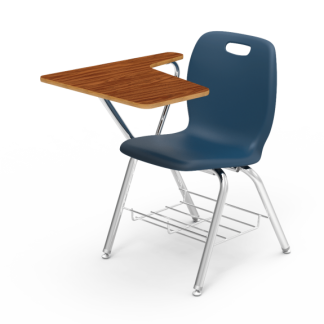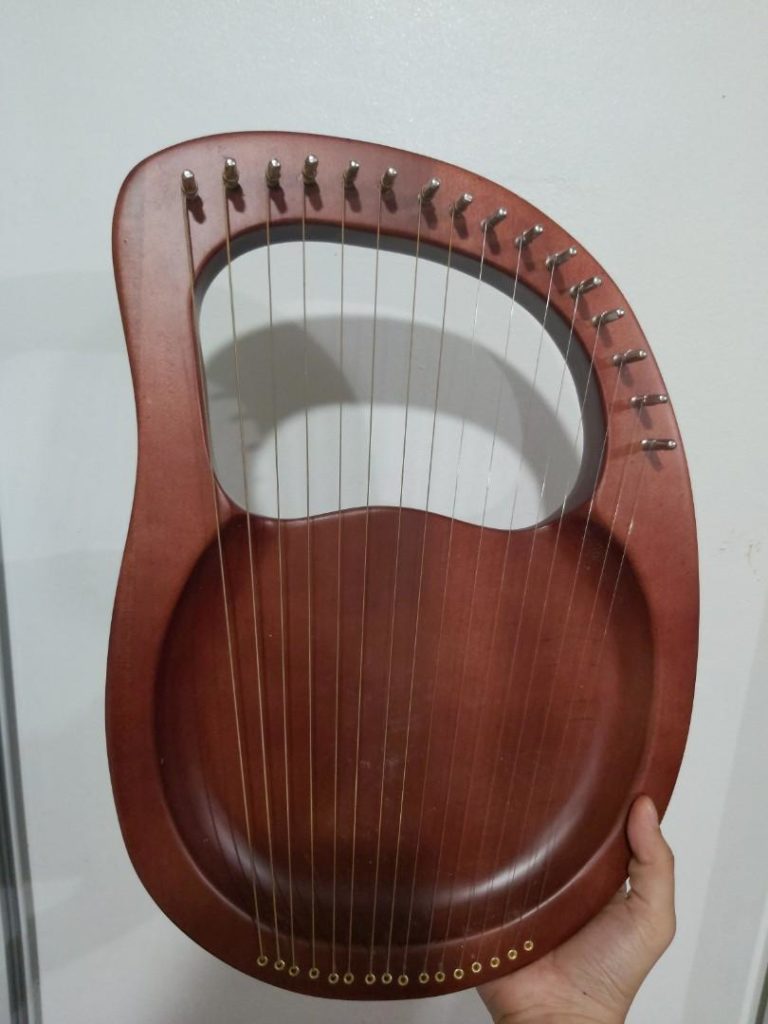Being left handed has had a profound affect on my comfort in social situations, an affect perhaps equal to starting school at the age of five instead of the usual six, which meant that I was constantly comparing my abilities to children often a year or more older than I was. Sometimes these influences worked in tandem. I’ve only recently come to understand them.

I started school a year or two after converting left handed writers to right handed went out of fashion. So I was allowed to use my natural, preferred hand to write with. I suppose this was considered a kindness, but like many well intentioned educational changes, it had unintended consequences for me. Desks were designed to be right handed. Such desks were entered on the left side. Support for the right arm was provided on the right side, which widened to form the writing surface. Each of my first school classes began with a search for a left handed desk for me to use. This, along with constant remarks on my left handedness, caused me to feel that I was somehow different from the other students, somehow unusual, somebody who didn’t really fit in.

This was brought home to me a few years ago. We had purchased a telephone desk that sat by the door. It had a seat and a seat on the right on the side, with the table for the telephone on the left, situated so that it was natural to pick up the receiver with the left hand, leaving the right hand free for writing notes. It was very awkward to pick up the receiver with the right hand so one could write with the left. I was sitting at this desk one day with the phone in my left hand, and began casually doodling with my rright hand on the note paper we kept beside the phone. I started writing cursive letters, and realized how easy it would have been to learn to write right handed since I can do most things easily with either hand. (Technically I am ambidextrous, not mixed-handed, since I do everything with my left hand unless I was trained to do it with my right: mixed-handed people use the right hand for some things and the left for others, whereas the ambidextrous can use both hands equally well for most tasks. I learned to roll a coin across my right knuckles because the script required me to teach this trick to a right handed actor. Now I can do that with some facility, but it would take hours of practice to learn to do it with my left hand.) The realization that I could easily have been converted to writing with my right hand hit me with an emotional rush, almost bringing me to tears. The thought that came to my mind was “And then I’d be normal”. Until that moment, I had no idea how abnormal being left handed made me feel. Explains a lot.
I suppose I should be grateful that the social prejudice against left handed people is pretty much a thing of the past. In the middle ages, when lefties were referred to with such pejoratives as “cack handed” (shit handed) or “sinister” and assumed to be allies of the devil, the unfortunate lefties were often driven from their villages by the taunts and slurs of the ignorant bastards they had to live with.
This caused my favourite, and most ironic, result. Left handers became the traveling minstrels and entertainers, moving from village to village performing and bringing the news. They are the ones who developed virtually all of the stringed instruments – violins, guitars, mandolins, lutes, and all the rest. Now, if you think about those instruments, the left hand does almost all of the heavy lifting, the fingering of notes, stretching to make chords and, in the case of fretless instruments, developing perfection of intonation and vibratto. It’s only after the performer has developed considerable sophistication that the right hand does more than strum or saw across the strings with a bow, easy tasks compared to what the left hand must learn.
Right handers naturally assume that all these instruments are right handed, since almost everything else in this world was designed for their use. But no. The stringed instruments are naturally left handed. Many left handed but essentially ambidextrous people have been convinced that they need to reverse the strings on a guitar or violin to learn to play it. Not true and so sad.

I play guitar, mandolin, banjo and violin the way they were designed to be played – left handed. It’s the right handed musicians who should be reversing the strings. The jokes on them, eh.
So, being left handed made me feel like a misfit, weirdo, oddball in school. But now that I’m an adult, how do I feel about it? Mostly I couldn’t care less. Aside from my wife wanting to sit on my right side at a dinner table, or taking care to seat me on a corner when we dine with others, it really isn’t an issue in my life. I once owned a left handed can opener, and had one heck of a time trying to figure out how to use it, just like my right handed friends. Since I’d never held a left handed bolt action rifle, I recently bought one out of curiosity, a left handed Savage 300 Winmag. Worst gun I’ve ever owned (for me). Kicks like a bastard, and the knob on the bolt tends to bash into the knuckle of my trigger finger if I’m not careful. I never resorted to handling a right handed bolt action rifle the way the sniper in “Saving Private Ryan” did, so such rifles never gave me any trouble.
Apparently being left handed is associated with creativity and a greater ability to visualize in three dimensions, which fits. Recent studies show more lefties in the arts, and among architects. Lefties also have %15 greater lifetime earnings than the right handed. But these are just statistical averages and don’t mean much at an individual level.
I’ve come to accept that there is no such thing as normal. If being left handed messed up my childhood, it hasn’t messed up my life. Being proud of being left handed is as silly as being proud of being white, or tall, just another accident of birth. I’m proud of accomplishments, not of things I had nothing to do with.
UPDATE: I am now ready to reconsider my theory that all stringed instruments are left handed, having recently become acquainted with the lyre harp, one of the earliest and simplest stringed instruments which probably predates the guitar and most certainly predates the violin.

The lyre harp in one of its simplest forms, with no resonator chamber.
The lyre harp is held by the left hand and the strings are plucked with the right. So in that case, the right hand is doing all the work and the left is doing nothing but holding the instrument.
I can see how the lute, guitar, mandolin, and eventually the violin could have evolved from this instrument, with the expectation that the right hand would pluck the strings. It might have been an afterthought that eventually gave the left hand more to do, to the extent that the left gradually assumed the more difficult role.
Well, it was a good theory. The jury is still out. Whatever the origin of the instruments, switching guitar strings for a left handed player still makes no sense at all.
